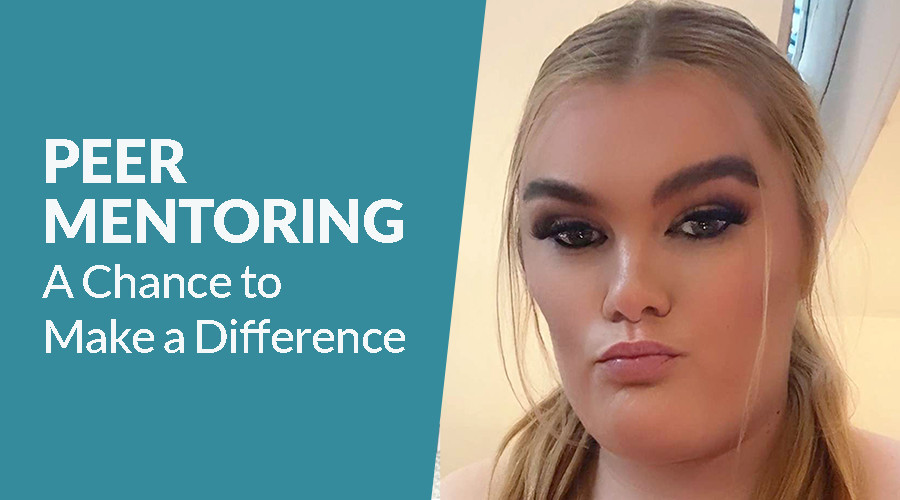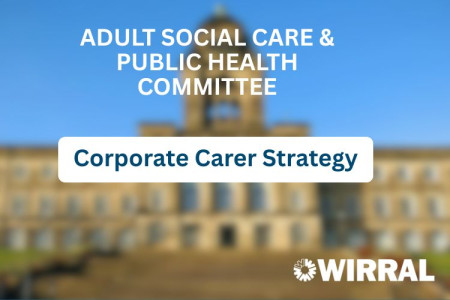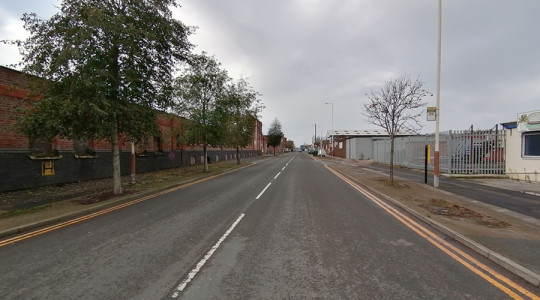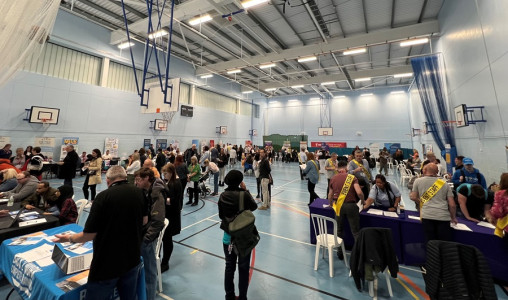“Peer mentoring could make a difference that could save a life.”
When a young person commits a crime, they are at a crossroads – do they reoffend or, with the right support, turn over a new leaf?
Wirral Youth Justice Service supervises young people aged 10 to 17 who have been involved in offending behaviour. The service works with these young people to help them turn their lives around and avoid reoffending. It is a multi-agency service, made up of social workers, youth justice workers and staff from education, police, probation and health.
Volunteers also play a vital role in this service, with opportunities to mentor young people.
Sophie Rose is a Tranmere resident and has been a peer mentor as part of Creative Youth Development for over a year. Although she’s worked with the service, first as a young person, then a peer educator, for more than 15 years.
Through her role, she is predominantly based at Pilgrim St Arts Centre – a vibrant hub offering creative activities and groups for young people with special education needs and disabilities (SEND).
Sophie said:
I came through Pilgrim St myself, through the SEND Youth Voice Group, and I was receiving support due to family breakdown and some other issues. From there, my confidence grew and I became an advocate for other young people. That’s how the opportunity to become a peer mentor came about.
Sophie joined a group of peers on a Peer Mentor Induction Course, training mentors to help connect young people with prevention services and early intervention activities.
Sophie said:
As a peer mentor, it’s my role to work with young people and advocate for them. I work with a lot of the young people who also have SEND, so I help them get involved in activities and I signpost them when they need support for other issues.
Often, young people who commit crimes are being taken advantage of by adults or even gangs. The peer mentor initiative targets areas affected by gang activity, serious violence and exploitation.
Sophie said:
I’ve worked with young people who have been exploited, there are often many different angles to that exploitation including financial control or grooming. It’s my job to look out for that young person and try to support them, advocating for them when they can’t do it themselves. Quite often, the people who exploit these children try to isolate them – I want to make sure that they know I won’t give up on them.
Mentors may help support a young person back into education or training, find positive social activities for them to engage with, play sports, walk the dog or simply talk. It sounds simple, but a peer mentor could be the first adult to voluntarily listen to that young person and respect their views and opinions.
Sophie doesn’t see these young people as criminals. She sees them as children who need support to get themselves onto the right path.
Sophie said:
We are their voice. When I am working with a child who is being exploited, watching them slowly start to understand their situation, to grow and gain that strength, it’s incredible.
With our help, they start to see how they can get their lives back on track, and off that path they’ve been on.
Wirral Youth Justice Service is looking for more volunteers to become mentors and peer mentors. Sophie would recommend the scheme to anybody who wants to make a different.
Sophie said:
It might sound weird to say, but it’s a privilege every day to work with these kids who are going through such challenging times. To know that your mentoring could make a difference that could save someone’s life.
All volunteers will be fully trained before becoming a mentor and will receive ongoing support throughout their time with the Youth Justice Service. To learn more, and register your interest in being a mentor, visit: Wirral Youth Justice Service | wirral.gov.uk.




